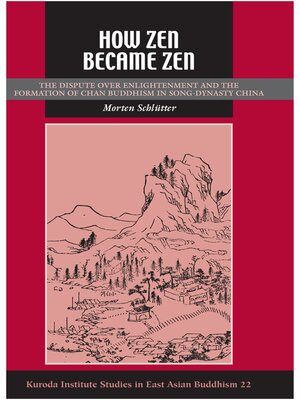How Zen Became Zen
ebook ∣ The Dispute over Enlightenment and the Formation of Chan Buddhism in Song-Dynasty China · Kuroda Studies in East Asian Buddhism
By Morten Schlutter

Sign up to save your library
With an OverDrive account, you can save your favorite libraries for at-a-glance information about availability. Find out more about OverDrive accounts.
Find this title in Libby, the library reading app by OverDrive.



Search for a digital library with this title
Title found at these libraries:
| Library Name | Distance |
|---|---|
| Loading... |
How Zen Became Zen takes a novel approach to understanding one of the most crucial developments in Zen Buddhism: the dispute over the nature of enlightenment that erupted within the Chinese Chan (Zen) school in the twelfth century. The famous Linji (Rinzai) Chan master Dahui Zonggao (1089–1163) railed against "heretical silent illumination Chan" and strongly advocated kanhua (koan) meditation as an antidote. In this fascinating study, Morten Schlütter shows that Dahui's target was the Caodong (Soto) Chan tradition that had been revived and reinvented in the early twelfth century, and that silent meditation was an approach to practice and enlightenment that originated within this "new" Chan tradition. Schlütter has written a refreshingly accessible account of the intricacies of the dispute, which is still reverberating through modern Zen in both Asia and the West. Dahui and his opponents' arguments for their respective positions come across in this book in as earnest and relevant a manner as they must have seemed almost nine hundred years ago.
Although much of the book is devoted to illuminating the doctrinal and soteriological issues behind the enlightenment dispute, Schlütter makes the case that the dispute must be understood in the context of government policies toward Buddhism, economic factors, and social changes. He analyzes the remarkable ascent of Chan during the first centuries of the Song dynasty, when it became the dominant form of elite monastic Buddhism, and demonstrates that secular educated elites came to control the critical transmission from master to disciple ("procreation" as Schlütter terms it) in the Chan School.







